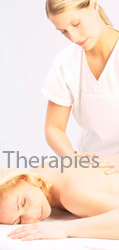Complementary and Alternative Therapies - Healthy Life Essex
Complementary and Alternative Therapies in Essex
A number of practices come under the heading of Complementary and Alternative Medicine (CAM). Complementary and alternative therapies (also known as holistic, traditional or natural medicine), consider a person’s social, emotional and physical health in unison. This approach is usually not taught at Western medical schools or adopted by mainstream Western medicine.
Many of the CAM disciplines are based on practises that are thousands of years old, often adapted from Eastern cultures. There are also a significant number of new therapies, frequently originating in the United States or Australia. There are many highly qualified and experienced holistic therapists in Essex offering a range of complementary and alternative therapies. Our ‘Find a Therapist in Essex’ directory will help you find a therapy and therapist to suit you.
Eastern cultures. There are also a significant number of new therapies, frequently originating in the United States or Australia. There are many highly qualified and experienced holistic therapists in Essex offering a range of complementary and alternative therapies. Our ‘Find a Therapist in Essex’ directory will help you find a therapy and therapist to suit you.
- Choosing a complementary or alternative therapy and therapist in Essex.
- Holistic v drug-based medicine
- Complementary therapies working alongside conventional medicine.
- Alternative v complementary
- The five categories of CAM
Choosing a complementary or alternative therapy and therapist in Essex.
The choice of complementary and alternative therapies available in Essex is often quite bewildering and one of the aims of Healthy Life Essex is to provide information to the general public about these therapies. This will enable informed decisions to be made so that the most appropriate treatments can be chosen, and a qualified complementary or alternative therapist in Essex can be found by using the Healthy Life ‘Find a Therapist in Essex’ directory. (HL recommends that practitioners’ qualifications are always checked before embarking on a particular treatment). Therapy information, including articles, will be updated regularly. Please subscribe to the Healthy Life Essex newsletter so that we can keep you informed about information and articles added to ‘therapies’, and any other area of the Healthy Life Essex website that interests you.
Holistic v drug-based medicine
CAM practitioners take a holistic (meaning ‘whole’) view of the body and, wherever possible, will aim to stimulate the body’s own healing mechanisms. This therapeutic approach considers a person’s social, emotional and physical health in unison.
Conventional or allopathic (drug-based) medicine typically looks at the symptoms expressed by the body and frequently uses medication to suppress these symptoms without addressing the root cause. Most of us will be aware, for example, of the seemingly endless prescribing of anti-biotics – even to babies! This may well deal with the immediate problem, but the likelihood is that these drugs will cause problems at a later stage in the child’s life.
Complementary therapies working alongside conventional medicine.
Complementary therapies are now often used alongside conventional medicine, with some therapies such as cognitive behavioural therapy (CBT) actually becoming mainstream. It is wonderful to see the increasing number of hospitals and doctors’ surgeries in Essex and elsewhere that are including complementary practises, such as reflexology and aromatherapy, among the treatments offered to their patients. This is particularly prevalent in cancer units where CAM therapists offer much needed respite and relaxation to patients. Unfortunately, too many NHS practitioners are still reluctant to acknowledge the benefits that CAM can offer.
Prince Charles is a passionate advocate of an integrated approach to healthcare. This means placing an emphasis on prevention and on tackling the social and environmental causes of ill-health, as well as using safe, proven complementary therapies alongside conventional medicine.
“We are infinitely complex beings – mind body and spirit – that cannot just be reduced to mechanical functioning. Healthcare should, and must, attend appropriately to all three aspects.” HRH The Prince of Wales
In 1993, Prince Charles established the charity, the Foundation for Integrated Health (FIH,) which worked to bring together the representative bodies of many complementary professions to talk and agree standards. The result was the formation of the Complementary and Natural Healthcare Council (CNHC) in 2009. The FIH closed in 2010.
It is still difficult to convince many mainstream practitioners of the validity of some of our wonderful holistic therapies, although that is slowly changing. Indeed, a surprising number of complementary therapists were previously NHS doctors or nurses.
Alternative v complementary.
Alternative therapies differ to complementary therapies in that they are normally considered as a genuine alternative to allopathy. In crisis situations, they may work together, but generally, they would be working against each other. (For further information, see the article ‘Alternative or complementary or just different” by Eve Gilmour, an experienced naturopath based in Leigh-on-Sea, Essex).
The five categories of CAM
Broadly speaking, CAM therapies can be divided into five different categories. In brief:
- Alternative Medical Systems. For example homoeopathy, naturopathy, traditional Chinese Medicine (TCM) and Ayurveda.
- Mind – Body Interventions such as meditation, prayer, mental healing, and therapies that use creative outlets such as art, music, or dance. Cognitive Behaviour Therapy (CBT) was a CAM therapy that has now become mainstream.
- Biologically Based Therapies that use substances found in nature, such as herbs and natural dietary supplements.
- Manipulative and Body-Based Methods are based on manipulation and/or movement of one or more parts of the body. Some examples include chiropractic or osteopathic manipulation, and massage.
- Energy Therapies involve the use of energy fields. There are two types:
- Biofield therapies are intended to affect energy fields that purportedly surround and penetrate the human body. Reiki is probably the best known example of this type of therapy.
- Bioelectromagnetic-based therapies involve the unconventional use of electromagnetic fields, such as pulsed fields, magnetic fields, or alternating-current or direct-current fields.
If you would like to continue to receive information about complementary and alternative therapies, please sign up to receive our newsletter.
